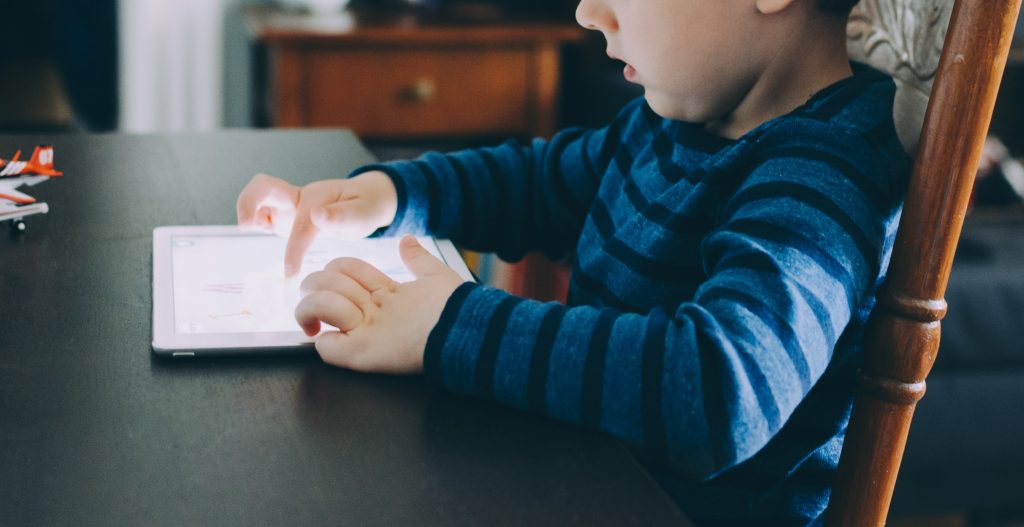How Much Screen Time is Too Much During Quarantine?
Dr. Jenny Radesky joins CultureShift to discuss how parents and children can build a healthy relationship with technology amid a global pandemic..

How much screen time is too much may not be a new question. But it’s definitely become a more complicated one amid a global pandemic that is forcing many parents and caregivers to work remotely while attempting to educate and entertain their kids at the same time.
The internet is a vital tool for people to connect and now the main way to socialize while under a shelter-in-place order. Does that make increased screen time ok?
According to Dr. Jenny Radesky, a pediatrician who specializes in youth development and digital media at the University of Michigan’s C.S. Mott Children’s Hospital, now is the time to think about how we’re using technology and to be aware that kids respond to media in both positive and negative ways.
“It’s fine to set time limits, but I love to get at some of the issues around content and how that makes us feel, how we’re using media together as a family rather than letting it separate us.” — Dr. Jenny Radesky
Listen: Dr. Radesky discusses the effects of increased screen time during a global pandemic
“As we’re learning to cope, [consider if] the way we’re using technology is distracting. Screen time is one easy way to think about technology use, but it doesn’t capture everything. It’s fine to set time limits, but I love to get at some of the issues around content and how that makes us feel, how we’re using media together as a family rather than letting it separate us,” Dr. Radesky tells CultureShift’s Amanda LeClaire. “Research has shown that more time with the TV on or using mobile devices, the less parent-child conversation there is and fewer words kids hear and that’s important because that’s how they build language. But it’s also the way they cope emotionally or make sense of the world.”
Dr. Radesky suggests that sites like Wide Open School, where positive content is vetted and classified by age and category, are ideal digital tools to engage with youth while promoting mental stimulation. “I’ve been sending a lot of my patients to their emotional well-being site where you can find a lot of activities that deal with mindfulness,” she says.
Additionally, just as adults monitor children’s use of technology, it’s also important for parents to carve out a time to disconnect.
“[Kids] do watch us, parents,” she says. “We are really important role models and it does help if parents know when to turn it off too. So if you schedule a little break in your day, shorten some of your meetings, then go take that break and check in with your child – make a snack together or go outside. Those are ways that we have control of our technology use too.”
She adds, “There’s no perfect way to do this. But we have to be aware of when we’re getting drawn into entertainment and binging and when it’s displacing other things.”
Trusted, accurate, up-to-date
WDET is here to keep you informed on essential information, news and resources related to COVID-19.
This is a stressful, insecure time for many. So it’s more important than ever for you, our listeners and readers, who are able to donate to keep supporting WDET’s mission. Please make a gift today.
